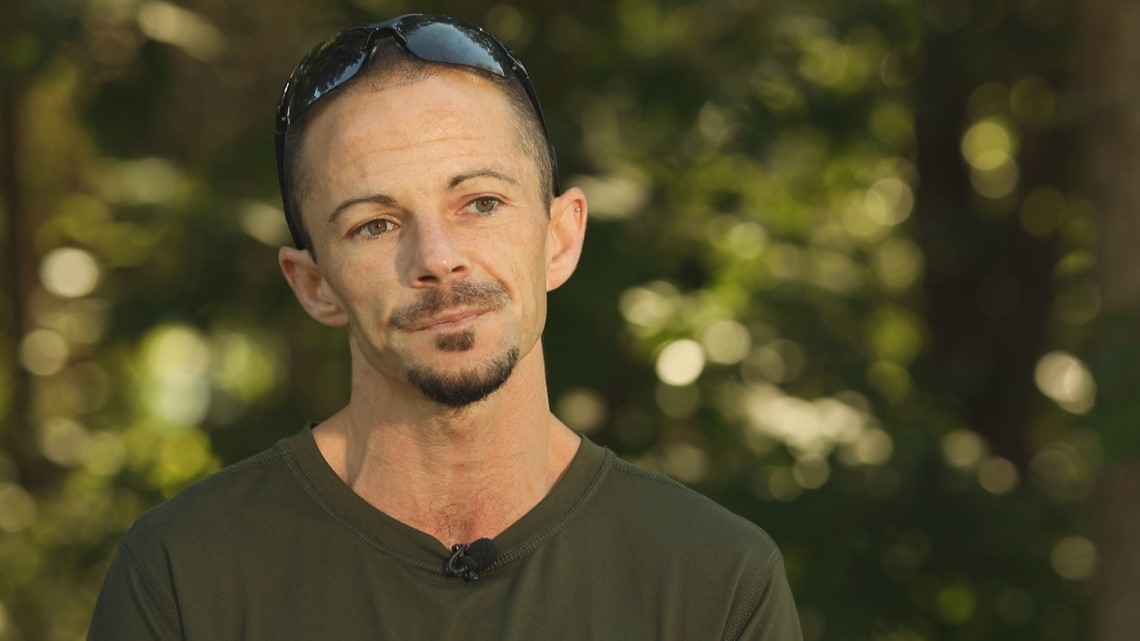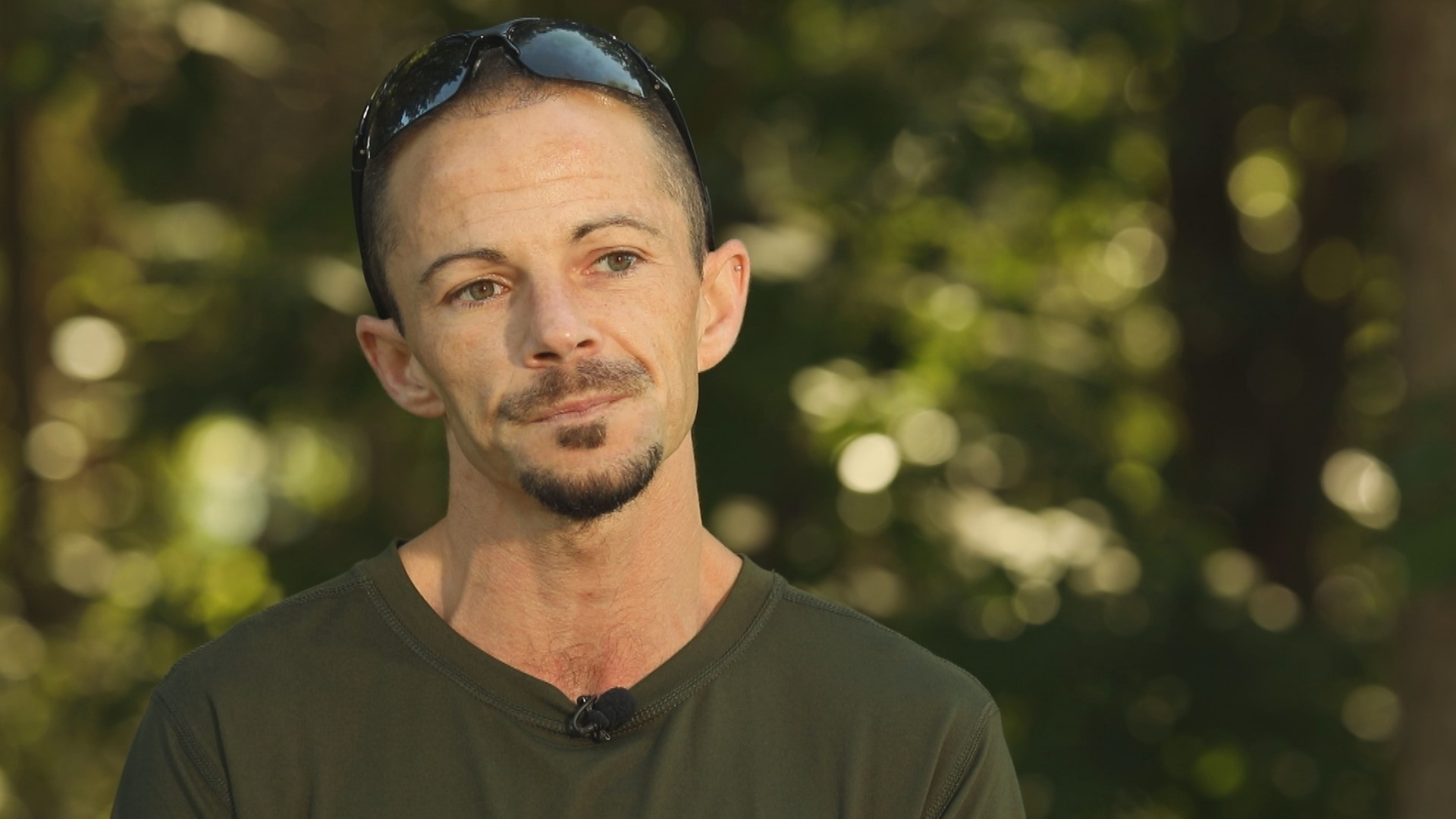MINNEAPOLIS, Minnesota — Nate Cannon owes a lot to running.
"Running is the best drug that I've ever had, and as someone who is nearly 20 years in recovery, that's a very big statement to make," Cannon said.
On a Tuesday morning in the middle of August, Cannon runs around Cedar Lake in Minneapolis. He's training for the Medtronic Twin Cities Marathon in the fall.
"It's a time when we see everyone really come together in support of others. It doesn't matter what your age, your race, or ability is. People are out there cheering you on," Cannon said. "That sense of community and togetherness is just invaluable to me."
Behind every runner, there's a different spark that sets them on their journey in motion. Cannon's journey starts at the very beginning.
"From a very young age, I had told my mom that the stork brought the wrong bag... I knew that I was supposed to have been born as a boy. Unfortunately, I was born as a girl and lived 31 years as a woman but had a lot of struggles during those years, including many years of chemical dependency and wrestles with my mental health," Cannon said.
It led to a suicide attempt at the age of 17. Years later, early into his sobriety, he found running.
"Running was a big piece of what helped me to get and maintain my sobriety and a big piece of what was my toolbox of recovery," Cannon said.


But about eight years after his suicide attempt, which caused a brain injury, he started to develop symptoms of dystonia — a movement disorder and cousin of Parkinson's disease.
"I was surprised that it took until age 26 for the symptoms of dystonia to surface," Cannon said.
Cannon recalled his neurologist telling him that he had "rewired his brain."
Dystonia has impacted Cannon's muscles in a significant way.
Cannon described dystonia as a disorder that's "caused by an abnormality in our basal ganglia which helps control our voluntary movements. So in dystonia, this malfunctions which causes the basal ganglia to send erratic signals to the muscles that cause them to go into spasm and contraction at times when they should be relaxed. So for myself, that can very much feel like someone is kind of reaching in and twisting your muscles like a dish rag. It's both painful and uncomfortable."
Cannon was concerned he may not be able to run anymore but was relieved when doctors told him the opposite, saying it could help with his dystonia.
Cannon describes having pretty persistent spasms and contractions, although his struggles with dystonia may not be noticeable to others.
"There's a little tilt to my posture. Typically off to my right. A little bit of a head tilt and kind of more of like a hockey posture... that contortion is really what I'm battling every step of the way," Cannon said.


Cannon has found that Botox injections can help relieve his symptoms, allowing the muscles to eventually release and relax while he runs.
He chooses not to focus on numbers but instead listens to his body and what it needs — although some numbers are noteworthy.
This fall will mark Cannon's 20th marathon, and 15th straight running the Medtronic Twin Cities Marathon.
"I can say definitively that I would not be alive today if I had not been able to pursue my gender transition," Cannon said. "Undergoing that change, it was really a wonderful honor and I felt so respected when the Twin Cities Marathon was willing to essentially drop the 'F' off of my race bib the first year that I ran when I was going through transition but hadn't yet gotten to a place where I had legally changed my name. That was a really important milestone for me and I've since noted that we no longer use those gender markers on race bibs which I think is pretty awesome."
That was back in 2012. Cannon continued, "The Twin Cities Marathon was the first race where I was able to essentially run as the man that I knew I was supposed to be... It's been very affirming."
You can learn more about Cannon's story through his two memoirs.
If you or someone you know is facing a mental health crisis, there is help available from the following resources:
- Crisis Text Line – text “MN” to 741741 (standard data and text rates apply)
- Crisis Phone Number in your Minnesota county
- National Suicide Prevention Lifeline at 988, Talk to Someone Now
- Throughout Minnesota call **CRISIS (**274747)
- The Trevor Project at 866-488-7386
WATCH MORE ON KARE 11+
Download the free KARE 11+ app for Roku, Fire TV, Apple TV and other smart TV platforms to watch more from KARE 11 anytime! The KARE 11+ app includes live streams of all of KARE 11's newscasts. You'll also find on-demand replays of newscasts; the latest from KARE 11 Investigates, Breaking the News and the Land of 10,000 Stories; exclusive programs like Verify and HeartThreads; and Minnesota sports talk from our partners at Locked On Minnesota.
- Add KARE 11+ on Roku here or by searching for KARE 11 in the Roku Channel Store.
- Add KARE 11+ on Fire TV here or by searching for KARE 11 in the Amazon App Store.
- Learn more about the KARE 11+ app for Apple TV in the Apple App Store.
- Learn more about KARE 11+ here.
Watch more local news:
Watch the latest local news from the Twin Cities and across Minnesota in our YouTube playlist:

